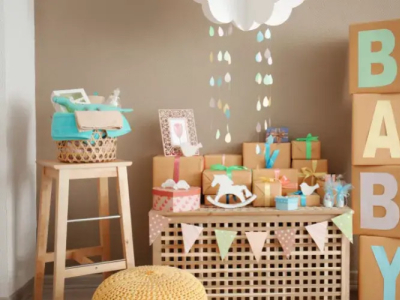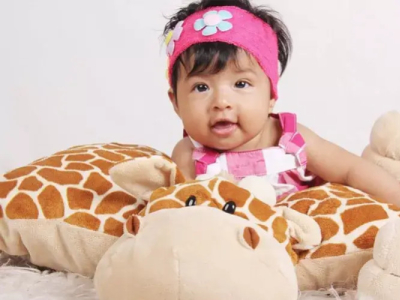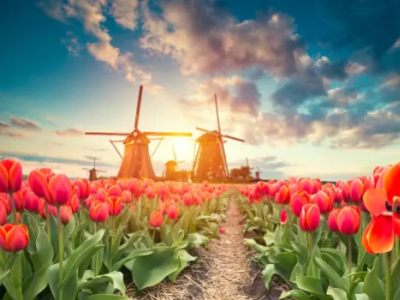
Traditions in the world around birth
The birth of a baby, a happy event, is the subject of multiple rites depending on the country of the globe...
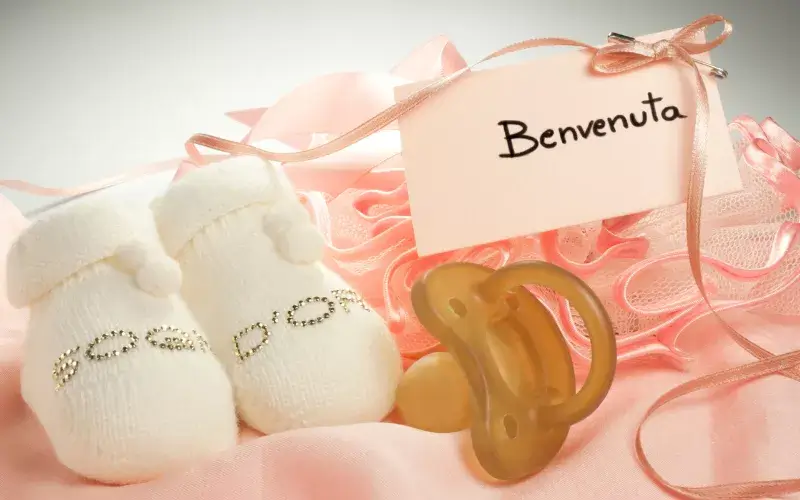
In Vietnam: mom is resting

The young mother is at rest for the month following the birth. It is considered to have lost heat, blood and breath of life. This is why she must stay warm in her bed, not take a bath or wash her hair, avoid getting up and if necessary take small steps.
In Ukraine: an egg brings good luck
We offer the "Pysanka" when a baby is born. These eggs are manually decorated and bring happiness, health, prosperity and protection to people.
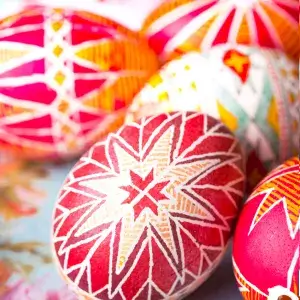
In China: the feast of the first month
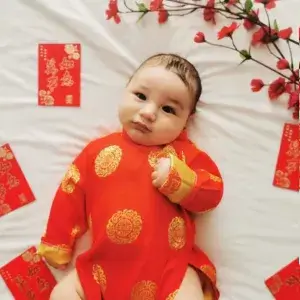
The young mother applies the same principles as in Vietnam. When she has finished her month of rest, she organizes the party of the first month. So far, the child has not been seen by the family so he is officially presented to the elders. During this festival, his head is shaved leaving a small tuft of hair at the bottom of the neck to symbolize the link with the ancestors.
In Nigeria: a rite of passage
Among the Yoruba, one of the largest ethnic groups in the southern Sahara, there are several rites of passage. The first takes place at birth, the baby is sprinkled with water to make it cry and no one is to speak until the baby has cried. After the umbilical cord is cut, the placenta is burned at the back of the house. The child is then taken there to be bathed with a lofa glove and coated with palm oil. Last step: we suspend him by his feet to give him 3 spankings to make him stronger!
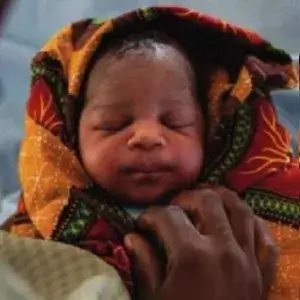
In Indonesia: the placenta is buried
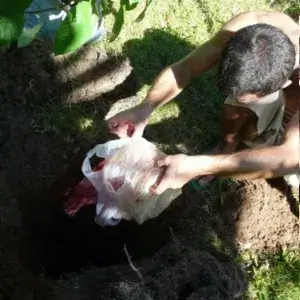
The placenta has a very important symbolic meaning in many countries. Often seen as the twin of the born child, he is taken in for various purposes. In Indonesia, it is placed in a green coconut shell which will be buried near the house to protect the child.
In the United States: The Baby Shower
a party, which takes place shortly before the baby arrives. It brings together the future mother and her best friends, who shower her and her unborn baby with gifts.

In Finland: the baby box

Young Finnish mothers are offered a baby box by their government for their infants.
It contains everything necessary for childcare: washable nappies, pajamas and birth clothes, toys, etc. a mattress and sheets, the box being cozy and large enough to serve as a bassinet.
The mother is not forgotten: useful postpartum supplies are slipped into the box, such as sanitary napkins or nursing pads.
In Sueden: The Dalarna horse
small wooden object, painted red and decorated with floral motifs. It is a symbol of strong values: dignity, strength, courage and loyalty.
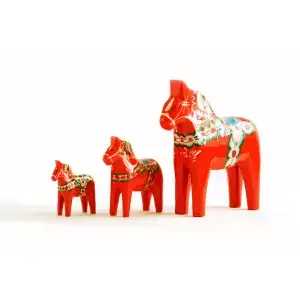
In Spain: the baby jump

In Catrillo de Murcia, a small Spanish village, children born in the year are gathered in the middle of the street to be placed on mattresses on the floor.
The little ones, under the age of one year old, see men disguised as devils jumping above them.
This folklore serves to bless babies and to whiten them from the original sin from which they came.
In Kenya: a wet blessing
Among the Maasai, after childbirth, the mother and her child are washed with a mixture of milk and water. Then, depending on the sex of the child, a drink made up of bull or heifer blood and hot milk will be served to the mother.
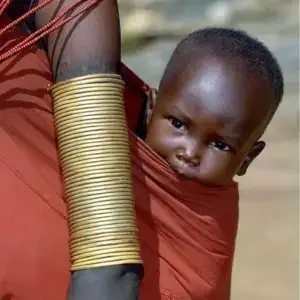
In Mexico: wrist bracelet
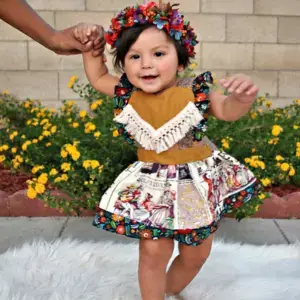
A few hours after the girls are born, their ears are pierced. Then, they are given a red bracelet to repel bad energies or lusts.
In the UK: silvering the baby
Each person who comes to meet the newborn slips a silver coin into their hand. Other silver objects are also used.
This ritual is said to bring luck to the baby and bring him prosperity.

Maghreb countries: the Aqiqah ritual

The ceremony takes place on the 7th day of the baby's life. Baby gets his hair cut and weighed. The equivalent of its weight is donated in silver or gold to a charitable association.
Whatever the ritual that accompanies it, the birth of a baby is always an event in itself . Beyond traditional habits and customs, each household can celebrate the arrival of a child in its own way.
